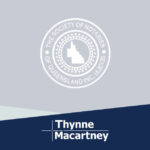The impact of COVID-19 is being felt across all business sectors in Australia and changing on an almost daily basis.
Since first preparing this update for landlords on Friday, we are now assisting clients understand their position and obligations considering stringent government restrictions imposed over the weekend.
We will continue to provide updates as more information becomes available to help our clients understand their positions.
To receive copies of our further updates, sign up here.
In the meantime, we recommend our clients consider the following terms and conditions in their leases.
We are available to help clients understand their obligations and in developing a strategy to continue operating through the current crisis.
1. Damage/destruction
Most leases contain a clause which provides that, if the premises or the building in which they are located are damaged or destroyed causing the premises to be unusable or inaccessible then the tenant is entitled to a rent abatement.
Considering the enforced national shutdown, this will become more relevant to tenants as they look to reduce their occupancy costs during periods of enforced closure.
It is possible that such a clause contemplates a rent abatement for a tenant if the premises or the building is required to be closed due to contamination or the risk of contamination. However, a careful analysis of the relevant clause in the lease will be required to determine whether closure due to COVID-19 could trigger an entitlement to a rent abatement.
On a more practical note and depending on their own position, landlords may wish to negotiate a period of rent reduction with clients if they are able to do so.
We are already seeing some landlords pledging to allow tenants to go rent-free for up to three months in other locations: ABC News ‘‘Suspend the rent’ campaign gathers momentum in Adelaide amid coronavirus outbreak’.
2. Frustration
When the landlord and tenant have not provided in the lease for an event which results in the parties being unable to perform their obligations then the common law doctrine of frustration may apply.
If a frustration event does occur then the parties have the right to terminate the lease.
Having said that, Courts have consistently set a very high bar to establish that a lease has been frustrated and so it remains to be seen if COVID-19 and resulting shutdowns continue to a point where they could be relied upon to terminate a lease.
3. Notification of disease
Many leases impose a positive obligation upon a tenant to notify a landlord of contamination or disease occurring within its premises.
Landlords should remind tenants of that obligation to ensure that they comply with notification requirements and undertake appropriate decontamination to ensure the tenant’s premises or the building in which they are located are not subject to unnecessary forced closure.
4. Closure of premises by tenant
Most retail leases impose an obligation upon tenants to trade during specified core trading hours unless prohibited by law.
In light of government directives issued over the weekend, many tenants are now required, as a matter of law, to cease trading or to trade in a reduced capacity.
For those tenants who are not affected by current government directives, they could still be required to cease trading due to an actual or suspected COVID-19 contamination. However, it would be incumbent upon the tenant to promptly take steps to decontaminate its premises and then re-commence trading.
A tenant should not rely on COVID-19 contamination to cease trading indefinitely unless directed to do so.
5. Closure of building by landlord
If a landlord elects to shut down its building due to an actual or suspected COVID-19 contamination and excludes tenants from accessing their premises, the landlord could be liable to the tenants for derogation from grant and/or breach of the covenant for quiet enjoyment.
Some leases excuse a landlord in such a situation where the building is closed due to an emergency or where required by law.
If the landlord is considering closing its building, then it should first consider carefully its leases to determine whether it will be exposed to claims from its tenants.
As part of a broader strategy, we recommend that a landlord develop a communications plan for its tenants to keep them informed of developments and steps being taken by the landlord to minimise the impact on them.
6. Insurance
Landlords should review their existing insurance policies to determine whether they may claim for loss of rent.
Whilst many insurance policies exclude losses caused by epidemics and pandemics, landlords should not discount the possibility of making a claim if they suffer loss of rent during the COVID-19 outbreak or any enforced shutdown.




